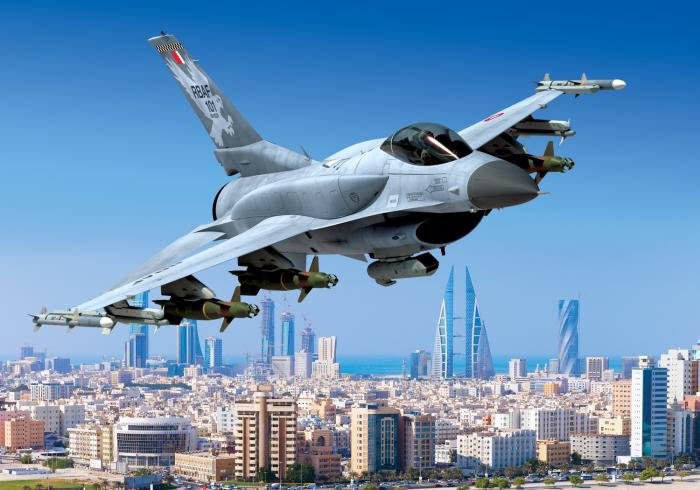Bahrain will receive F-16 simulators produced by Lockheed Martin to train pilots for national defence missions under a new agreement. Bahrain was the first country in the Gulf region to acquire the F-16 and the first in the world to procure the F-16 Block 70.
Since 2001, pilots from 16 countries have trained with Lockheed Martin F-16 training systems, with the company also providing aircraft maintenance training globally. Bahrain will eventually field a fleet of 16 F-16 Block 70 fighters.

“The latest generation Lockheed Martin F-16 training suite allows aviators to train in a holistic, realistic environment, which ensures mission readiness,” said John W Nicholson, chief executive for Lockheed Martin in the Middle East. “This comprehensive training solution builds on our proven training systems tailored for the Block 70 fleet of F-16s.”
The F-16 Block 70 aircraft features improved avionics, an Active Electronically Scanned Array (AESA) radar, a modernised cockpit, conformal fuel tanks, the Automatic Ground Collision Avoidance System (Auto GCAS) and features an extended structural service life of 12,000 flight hours.
To date, more than 4,500 F-16s have been produced, with approximately 3,000 F-16s operating today in 25 countries, including with the US Air Force. Worldwide, the F-16 has flown an estimated 19.5 million flight hours and more than 13 million sorties.
As revealed in AirForces Monthly, Bahrain could have to wait until 2024 before deliveries of the 12 single-seat F-16C and four twin-seat F-16D Block 70s are concluded, as a result of issues caused by the Covid-19 pandemic.
Announced in 2018, the $1.2bn contract called for the first jets to be handed over in Q1 2022 and completed by the end of 2023.

